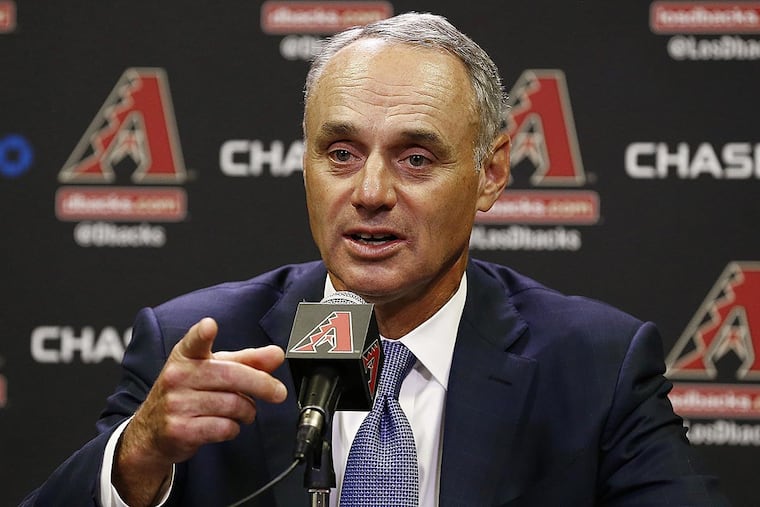Rob Manfred on home run surge: Baseballs are not juiced
It is all but certain that 2017 will join last season as two of baseball's three highest homer seasons. The home run is back. And something seems to be up.

MIAMI – Commissioner Rob Manfred praised the Home Run Derby on Tuesday afternoon, and you had to think for a moment what he was referring to: Monday night's event at Marlins Park or the first half of the baseball season?
More homers were hit in the season's first half — 3,343 — than ever before. The league is on pace to eclipse the record high set in 2000, which came four years before MLB began its punitive phase of drug testing. It is all but certain that 2017 will join last season as two of baseball's three highest homer seasons. The home run is back. And something seems to be up.
"This is one of those situations where I can't tell you that I know the answers. But let me tell you what I do know," Manfred said. "I do know that we have done more testing on the baseballs in the last couple of years than has ever been done historically. I do know with absolute certainty that the baseball falls within the specifications that have existed for many years. Absolutely certain about that."
Manfred said the baseballs were not juiced, stating that MLB hired a second investigator to audit the work of the testing institution it has used for a number of years. The players are not juiced, either, Manfred said. He said the league uses a state-of-the-art drug testing program with tests that are more frequent and less predictable "than ever in the history of the program."
The rise in home runs, Manfred said, could be a result of the way front offices build their teams and how managers guide their players. Yes, players are striking out at a record rate. It will be the 10th-straight year that baseball sets a strikeout record. The home run spike, however, started only last season and does not correlate with the rapid rise in strikeouts.
Manfred said MLB would next investigate the bats. Maybe, he said, stricter guidelines are needed on how baseballs are made. Perhaps the spike is caused by the conditioning of the players or the increased velocity of pitches. The only thing certain is that the league is uncertain about why home runs are flying.
"Will we ever know the whole answer? Probably not," Manfred said. "I think the more important question is to figure out as much as we can about what's going on and then think about what it means to our fans. We have to do something to manage the change that is taking place organically to the game we love."